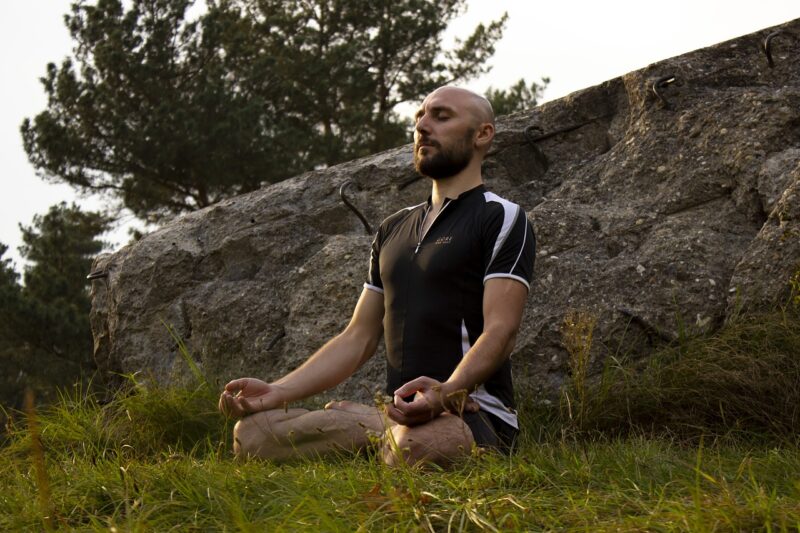How the Ancient Art of Meditation Is Gaining Modern Scientific Backing
November 16, 2024

Meditation, an ancient practice that has been around for thousands of years, has recently been gaining traction in modern science. Originally rooted in spiritual and philosophical traditions, meditation is now being explored by researchers for its potential effects on mental health, cognitive function, and overall well-being. This article delves into the compelling convergence between ancient wisdom and modern scientific inquiry, providing an overview of how meditation is redefining health and wellness in contemporary society.
1. The Origins of Meditation
Meditation can be traced back to various cultural and religious practices, including Hinduism and Buddhism, with roots in India and China. Historically, it was perceived as a method to deepen spiritual growth and mindfulness.
Early texts and scriptures depict meditation as a way to attain higher states of consciousness, enhance enlightenment, and connect with the divine. As the practice spread Westward over time, it encountered various cultural frameworks, giving rise to different techniques and approaches:
- Transcendental Meditation (TM): Introduced in the mid-20th century, TM emphasizes the use of mantras to facilitate deep relaxation and transcend ordinary thought patterns.
- Mindfulness Meditation: Integrating Buddhist practices into Western psychology, mindfulness involves being fully present in the moment and observing thoughts without judgment.
- Zen Meditation (Zazen): Originating from Zen Buddhism, Zazen is a seated meditation focused on breath awareness and direct experience of reality.
Despite diverse interpretations and techniques, all forms of meditation share a common goal—achieving clarity and tranquility of the mind.
2. The Rise of Scientific Inquiry into Meditation
Over the last few decades, the interest of scientific communities in meditation has surged. Researchers have begun conducting rigorous studies to understand how meditation influences both the mind and body. With advances in technology, particularly neuroimaging, scientists can now delve deeper into the physiological changes that occur during meditation.
Some key findings include:
- Brain Structure Changes: Research has shown that long-term meditation practitioners exhibit differences in brain structures compared to non-meditators. Areas such as the prefrontal cortex, associated with executive functions, and the amygdala, linked to stress response, demonstrate notable changes in size and connectivity.
- Reduced Stress and Anxiety: Numerous studies have found that meditation can significantly reduce levels of stress hormones like cortisol, leading to lower anxiety rates. Meditation promotes relaxation responses, enhancing emotional regulation and resilience against stressors.
- Improved Attention and Focus: Research indicates that individuals who engage in meditation regularly exhibit better focus and attention control. Mindfulness meditation, in particular, has been linked to enhanced cognitive flexibility and improved attention span.
These findings not only validate the potential benefits of meditation but offer convincing evidence for its integration into modern healthcare practices.
3. Meditation’s Impact on Mental Health
With increasing rates of mental health issues worldwide, meditation is emerging as a complementary treatment method for various conditions:
- Depression: Studies suggest that mindfulness-based interventions can be effective in reducing symptoms of depression. They encourage individuals to observe negative thoughts without attachment, fostering a healthier mindset.’
- Anxiety Disorders: Meditation helps individuals manage anxiety by promoting relaxation and grounding techniques. Research has shown it can be particularly beneficial in treating generalized anxiety disorder (GAD) and social anxiety disorder (SAD).
- Post-Traumatic Stress Disorder (PTSD): For individuals with PTSD, meditation can provide a sense of safety and calm, facilitating emotional processing and healing. Mindfulness-based therapies are increasingly being adopted in therapeutic settings for trauma survivors.
Incorporating meditation into an individual’s treatment plan can lead to improved outcomes and overall well-being.
4. Meditation in Schools and Workplaces
Recognizing its benefits, educational institutions and workplaces are increasingly incorporating meditation programs:
- Schools: Many schools are adopting mindfulness programs to help students reduce anxiety, improve focus, and enhance emotional regulation. Evidence suggests these programs can lead to better academic performance and interpersonal relationships among students.
- Workplaces: Companies are also integrating mindfulness training into HR policies to enhance employee well-being and productivity. Meditation programs in the workplace have shown promising results in reducing burnout and improving job satisfaction.
This shift promotes a holistic approach to education and work, acknowledging the importance of mental health and well-being in overall success.
5. How to Get Started with Meditation
If you’re inspired to delve into meditation, here are some practical tips to help you get started:
- Begin Small: Start with as little as five minutes a day and gradually increase the duration as you become more comfortable with the practice.
- Find a Quiet Space: Choose a comfortable and quiet location free from distractions to meditation.
- Focus on Your Breath: Concentrating on your breath can help anchor your thoughts. Inhale deeply through your nose, hold for a moment, and exhale slowly through your mouth.
- Explore Guided Meditations: Utilize apps or online platforms that provide guided sessions. This can be particularly helpful for beginners who appreciate structure in their practice.
- Be Patient: Progress may take time, and it’s essential to approach meditation with an open mind. Gradually, you will find noticeable changes in your mental clarity and emotional health.
Embarking on a meditation journey can lead to profound effects on both mental and physical health.
Conclusion
The reconvergence of ancient meditation practices with modern scientific research is paving the way for deeper understanding and appreciation of meditation as a vital tool for well-being. As studies continue to reveal its myriad benefits, including reductions in stress, anxiety, and improved cognitive function, meditation is poised to become an integral part of mental health and wellness practices worldwide. Whether you are seeking to manage your emotional health, improve focus, or simply embrace a more peaceful state of mind, meditation offers a pathway that harmonizes ancient wisdom with modern life.
Take the first step today by carving out time for yourself to connect with the present moment through meditation, allowing its ancient art to enlighten your modern life.







